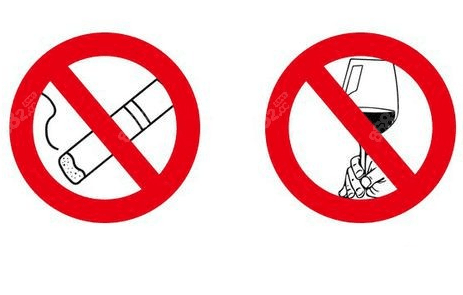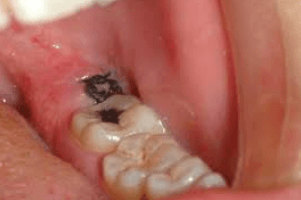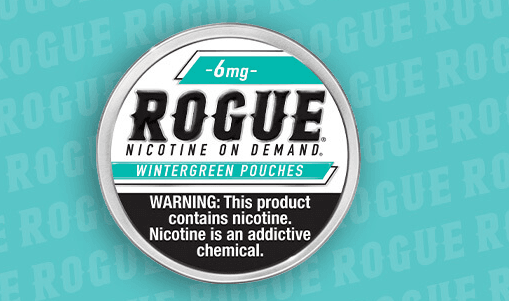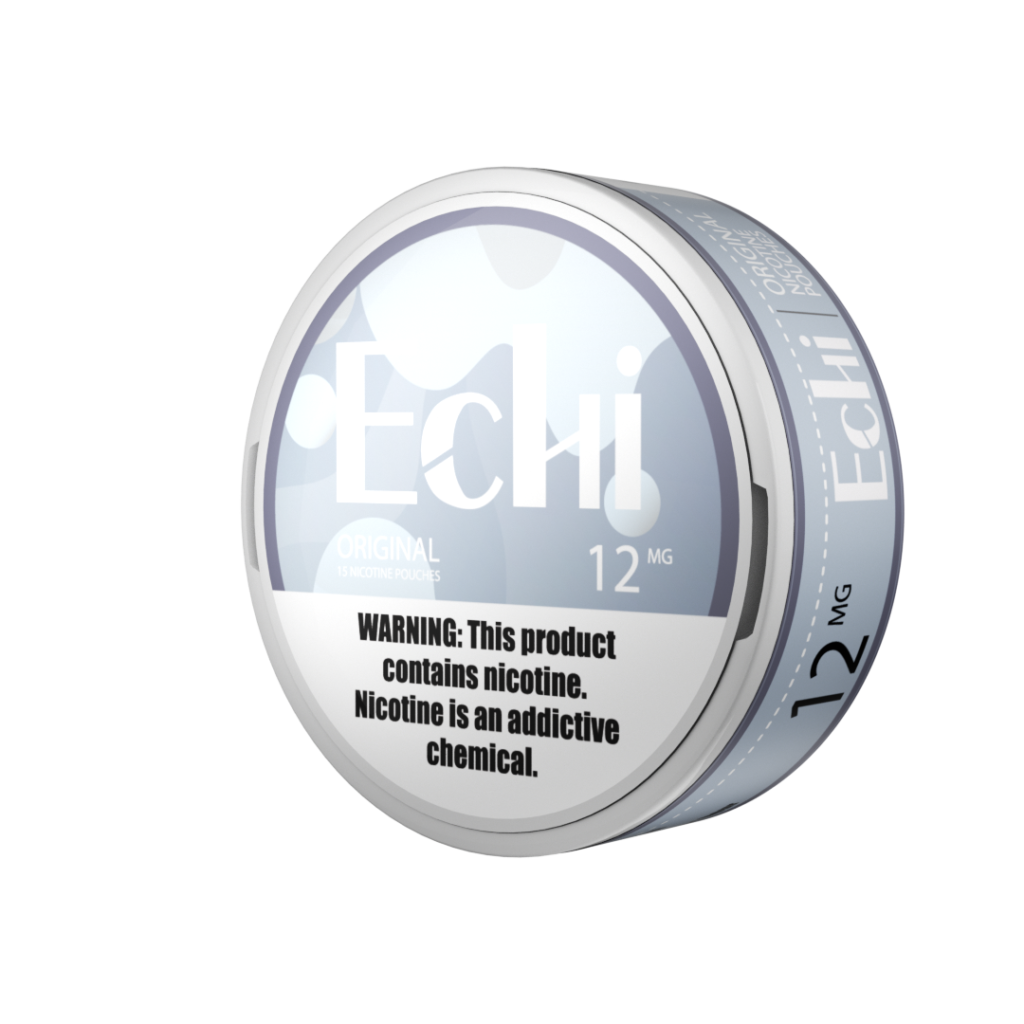Table of Contents
Introduction
For individuals who are regular users of nicotine, the period following wisdom teeth removal can present unique challenges. The necessity for nicotine often remains high, as many have developed a strong dependency that influences their daily routines. The impact of surgery combined with post-operative recovery makes access to nicotine a particularly pressing issue for these individuals. This article aims to discuss the steps one can take to navigate this difficulty while still adhering to the medical advice given by healthcare professionals.
Nicotine, often consumed through tobacco products, plays a significant role in the lives of users. For many, the effects of its absence can lead to withdrawal symptoms, which may include irritability, anxiety, and difficulty concentrating. These issues can be exacerbated during a time when the body is healing from surgery. Understanding the risks associated with smoking or using nicotine in the post-operative period is crucial, as it can hinder the healing process and increase the likelihood of complications.
Moreover, the trauma of wisdom teeth extraction often includes swelling and pain that can be sensitive to various stimulants, including nicotine. Patients may find themselves in a precarious situation: desperately craving nicotine to alleviate withdrawal symptoms while monitoring their healing progress. The juxtaposition of these needs necessitates a careful approach to ensure that their recovery remains prioritized. Thus, in the following sections, this article will explore various strategies that nicotine users can adopt to manage their cravings responsibly and safely during this critical period.
Understanding Wisdom Teeth Removal
Wisdom teeth removal is a surgical procedure that involves the extraction of the third molars, commonly referred to as wisdom teeth. These teeth typically emerge between the ages of 17 and 25, a time when many individuals are in the process of transitioning into adulthood. In many cases, these teeth may become impacted, meaning they do not fully emerge due to a lack of space in the jaw. Additionally, impacted wisdom teeth can lead to various dental issues, including infection, overcrowding, and associated pain. Hence, extraction is often recommended by dental professionals.
The wisdom teeth removal procedure usually begins with the administration of anesthesia, ensuring the patient remains comfortable during the surgery. Dental practitioners may employ local anesthesia, sedation, or general anesthesia depending on the complexity of the case and the patient’s level of anxiety. Once the anesthesia takes effect, the surgeon will proceed to extract the teeth, which may involve making incisions in the gums and occasionally removing bone tissue to access the tooth roots.
Post-operative care is crucial for a smooth recovery following wisdom teeth removal. Patients often experience swelling, discomfort, bruising, and minor bleeding in the initial days post-surgery. These symptoms can typically be managed with prescribed pain medication, ice packs, and adhering to dental care protocols provided by the oral surgeon. It is important to follow dietary recommendations as well, which often include soft foods and hydration to facilitate healing. Ignoring these post-operative care instructions can lead to complications, such as dry socket, infection, or prolonged recovery time. Understanding these aspects of the wisdom teeth removal procedure can prepare patients for a more comfortable and effective recovery experience.
Why Avoid Smoking After Surgery
Following wisdom teeth removal, patients often face various recovery challenges that necessitate cautious behavior regarding certain habits, including smoking and the use of nicotine products. Smoking poses significant risks during this healing period, specifically increasing the likelihood of complications such as dry socket and infection. Dry socket, or alveolar osteitis, arises when the blood clot at the site of the extraction becomes dislodged or fails to form properly. This condition can lead to severe pain and delayed healing, making it essential to minimize activities that could compromise the clot’s integrity.

Inhaling smoke introduces harmful chemicals into the oral cavity, which can irritate and hinder the healing tissues around the surgical site. The act of suction and the heat generated from smoking can create negative pressure in the mouth, exacerbating the risk of dislodging the blood clot. Moreover, the nicotine present in cigarettes restricts blood flow by constricting blood vessels, which is detrimental to the healing process. This reduced circulation can lead to prolonged recovery times and increased pain for the patient.
In addition to dry socket, there is the heightened risk of infection associated with nicotine use post-surgery. Nicotine can impair immune responses, making it more challenging for the body to fight off potential infections. As the mouth is already vulnerable to bacteria following an extraction, any additional immunosuppressive factors can significantly increase the risk of complications. Therefore, avoiding smoking and nicotine consumption during the recovery period is crucial.
Ultimately, while the urge to resume smoking might be strong, prioritizing recovery and allowing adequate time for healing should be the foremost concern. By taking necessary precautions and abstaining from nicotine use in the days following wisdom teeth removal, patients can help ensure a smoother and more successful recovery.
Nicotine Alternatives During Recovery
After wisdom teeth removal, many individuals find themselves seeking alternatives to traditional nicotine methods due to the healing process and the need to minimize irritation in the mouth. One of the most commonly recommended alternatives is nicotine pouches. These pouches are small, discreet sachets that contain a mixture of nicotine and other flavorings, and they are placed between the gum and lip. Unlike traditional tobacco products, nicotine pouches do not contain tobacco and do not require chewing or spitting, making them a user-friendly option during recovery.
The benefits of nicotine pouches include their ease of use and the controlled dosage of nicotine they provide. They can effectively tackle cravings without the risks associated with smoking or chewing tobacco. Moreover, because they don’t require any oral manipulation, they reduce the likelihood of irritating the surgical area, allowing for a smoother recovery process.
In addition to nicotine pouches, there are other alternatives worth considering. Nicotine gum and lozenges provide another convenient method to manage cravings. Both products allow for the gradual release of nicotine and can be used at any time during the recovery phase. Vaping is also an alternative, although it is essential to be cautious as vapor can still potentially irritate the healing tissue. For those significantly concerned about oral discomfort or irritation, it may be advisable to consider non-nicotine methods such as herbal supplements or stress-relief techniques, which can help reduce cravings without introducing nicotine into the system.
Ultimately, discovering the right method to manage nicotine cravings post-surgery will vary from person to person. It is crucial to prioritize healing while exploring these alternatives and to consult with healthcare professionals for tailored advice on nicotine use during recovery.
Consulting with Your Dentist or Doctor
Post-operative care following wisdom teeth removal is crucial for ensuring a smooth recovery. One significant aspect of this care involves understanding the implications of nicotine use in the healing process. Consulting with your dentist or doctor before resuming any nicotine products is essential. Both healthcare professionals can assess your unique situation and provide tailored recommendations based on their expertise.
Nicotine, a stimulant found in products such as cigarettes and chewing tobacco, can impede the healing process. It promotes vasoconstriction, which may reduce blood flow to the surgical sites, potentially leading to delayed healing or complications like dry socket, a painful condition that can occur after tooth extractions. Thus, it is strongly advised to discuss your nicotine use with your healthcare provider to fully understand the risks involved.
Your dentist or doctor will likely suggest a period of abstaining from nicotine products post-surgery. The timing can vary, but many professionals recommend waiting at least 48 to 72 hours following the procedure. This abstention allows the initial healing to occur without any added complications. After this critical window, if you choose to resume nicotine use, it is vital to do so cautiously and be aware of any symptoms that might indicate complications.
Moreover, your healthcare provider may offer alternative nicotine replacement therapies that pose fewer risks during the recovery period. These options can help ease cravings while minimizing impacts on your healing. Personal health history, along with the nature of the surgery, should inform the strategy for managing nicotine use post-surgery. Hence, fostering open communication about your nicotine habits with healthcare professionals will ultimately guide safe practices following wisdom teeth removal.

How to Use Nicotine Pouches Safely After Surgery
Using nicotine pouches after wisdom teeth removal requires careful consideration to promote healing while managing nicotine intake. First and foremost, it is essential to consult your dentist or oral surgeon before reintroducing any nicotine product into your routine. This step helps ensure that you are making informed choices based on your specific recovery progress.
When it comes to recommended dosages, it is crucial to start with the lowest strength pouch available. Most nicotine pouches come in varied strengths, typically ranging from 2mg to 8mg per pouch. For those who are used to higher nicotine levels, reducing intake temporarily can mitigate any potential post-surgery complications. Commencing with a 2mg pouch can provide a gentler reintroduction to nicotine, which is especially important following surgery, where the body’s sensitivity may be heightened.
Timing is another critical factor in using nicotine pouches post-surgery. It is advisable to wait at least 48 hours after surgery before using nicotine pouches. This period allows the initial healing process to start without irritation from the nicotine product. After the initial recovery phase, use pouches sparingly, ensuring that at least 2 to 3 hours pass between uses to avoid over-saturation of nicotine in the system.
Monitoring for signs of irritation is vital. Users should be aware of any unusual sensations, such as increased pain at the surgical site, swelling, or discomfort around the gums. If any of these symptoms arise, it is prudent to discontinue use and consult your healthcare professional. By adhering to these guidelines, individuals can manage their nicotine use while allowing their body the opportunity to heal appropriately after wisdom teeth removal.
Conclusion
After undergoing wisdom teeth removal, it is imperative to consider the implications of nicotine consumption on recovery. The healing process following dental surgery is critical, and introducing nicotine can have adverse effects on both healing and overall health. It is essential to recognize that smoking and other forms of nicotine intake can impede blood flow and delay recovery, which may lead to complications such as dry socket.
For those who experience nicotine cravings, it is advisable to explore safer alternatives during the recovery phase. Options such as nicotine gum or patches may provide a means to manage cravings without the harmful effects associated with smoking. These alternatives can help alleviate withdrawal symptoms while allowing the surgical sites to heal adequately. It is vital, however, to consult with a healthcare professional before making any changes to your nicotine intake, as they can offer personalized advice based on your health and recovery needs.
Furthermore, maintaining a cautious approach to nicotine consumption is essential for achieving optimal healing. Prioritizing recovery means making informed choices about nicotine use, balancing the desire to manage cravings with the need to promote healing. In doing so, individuals can support their recovery while still addressing their nicotine habits. Ultimately, the focus should remain on health, ensuring that any nicotine options considered do not hinder the body’s natural healing processes.
In summary, while it may be tempting to indulge in nicotine after wisdom teeth removal, prioritizing health should take precedence. By considering safer alternatives and following medical advice, individuals can successfully navigate their cravings while promoting a smoother recovery process.
FAQs
Following wisdom teeth removal, many patients may find themselves with questions regarding the use of nicotine. Understanding the implications and timing associated with nicotine consumption can ensure a smoother recovery process. Below are some frequently asked questions related to nicotine use post-surgery.
Can I smoke after my wisdom teeth are removed? It is generally recommended to avoid smoking for at least 72 hours after the procedure. Smoking can hinder the healing process, as it reduces blood flow to the healing tissues and increases the risk of dry socket, a painful condition that can occur when the blood clot at the extraction site dislodges. If possible, consider abstaining from smoking for a longer period to promote optimal healing.
What about nicotine alternatives, like vaping? Similar to traditional smoking, vaping can cause complications and should ideally be avoided for the same duration. Although the lack of combustion may seem less harmful, the inhalation of vapor can still irritate the oral tissues and affect healing. It is advisable to consult with your dentist for specific recommendations on when it may be safe to resume vaping.
Are there any risks if I use nicotine patches or gum? Nicotine patches or gums typically have a lower risk of causing oral complications compared to smoking or vaping. However, it’s crucial to consult with your healthcare provider regarding their use immediately after surgery. They can help determine the appropriate timing for using these alternatives based on your individual recovery progress.
Overall, it is essential to prioritize healing after wisdom teeth extraction. By avoiding nicotine in its various forms during the initial recovery phase, individuals can help facilitate a more effective recovery process and reduce the risk of complications.
Resources for Further Reading
For individuals seeking reliable information regarding nicotine use and its implications post-dental surgery, numerous credible sources are available. Understanding the potential effects of nicotine after wisdom teeth removal can significantly impact one’s recovery and overall health. Below are curated resources that can provide valuable insights and aid in the decision-making process.
The National Center for Biotechnology Information (NCBI) offers a comprehensive overview of the effects of smoking and nicotine on oral health. Their publications highlight the healing processes that are affected by tobacco use and provide guidelines on managing these risks during recovery.
Moreover, the Mayo Clinic publishes articles that delve into dental care post-surgery, focusing on recovery best practices. They emphasize the importance of avoiding tobacco products to promote healing and mitigate complications, which can be particularly relevant following wisdom teeth extraction.
Another excellent resource is the Centers for Disease Control and Prevention (CDC). The CDC provides information on the adverse health effects of nicotine and smoking, supplemented with studies that illustrate long-term repercussions. This knowledge can be vital for those considering nicotine usage during recovery, guiding them toward healthier choices.
Additionally, consulting with dental professionals can offer personalized advice based on individual circumstances. Dentists can provide tailored recommendations on nicotine consumption after wisdom teeth removal, ensuring that post-operative care is aligned with personal health goals.
In summary, utilizing these resources allows for informed decision-making regarding nicotine use post-surgery. It is essential to stay informed through credible sources to navigate the recovery process effectively.
Sharing Personal Experiences
Undergoing wisdom teeth removal can be a significant life event, often accompanied by numerous challenges and experiences. For individuals who are accustomed to using nicotine, navigating this post-surgery phase can introduce unique complexities. Many people find themselves grappling with the physical and psychological effects of abstaining from nicotine after the procedure. Sharing personal experiences surrounding nicotine use and wisdom teeth extraction can foster a sense of support and community among those navigating similar situations.
Several individuals have noted that the recovery period following wisdom teeth removal is both a time of healing and reflection. Some report that their cravings for nicotine intensify during this time, as the usual triggers associated with nicotine use may be disrupted. This disruption often leads to feelings of anxiety and restlessness, prompting many to seek guidance or share coping strategies. Others find that this period offers them a unique opportunity to reassess their relationship with nicotine, considering the potential benefits of a temporary break or even a permanent cessation.
Moreover, sharing stories encourages a dialogue about managing nicotine cravings while taking care of one’s health post-surgery. For instance, some individuals discuss alternative methods to cope with withdrawal symptoms, such as engaging in light activities, practicing relaxation techniques, or utilizing nicotine replacement therapies if deemed appropriate by healthcare providers. These discussions not only highlight the experiences of individuals but also emphasize the importance of listening to one’s body and making informed decisions regarding nicotine intake after wisdom teeth removal.
In conclusion, inviting readers to engage with one another by sharing their stories can create a supportive environment that acknowledges the unique challenges faced during the recovery period. Collectively, these experiences can empower individuals to make informed choices regarding their nicotine use while prioritizing their overall well-being during recovery.









